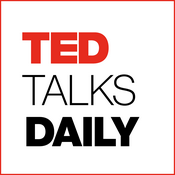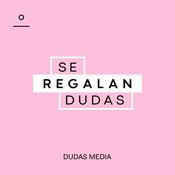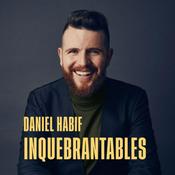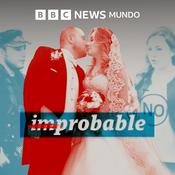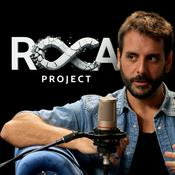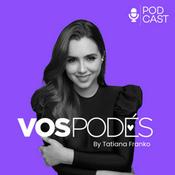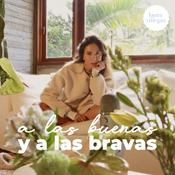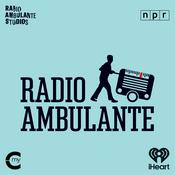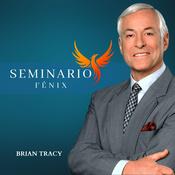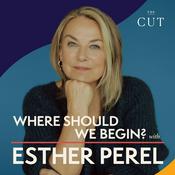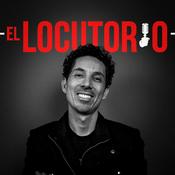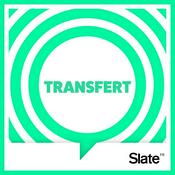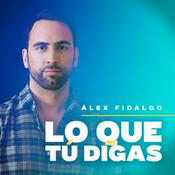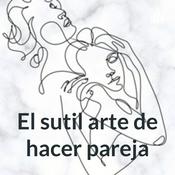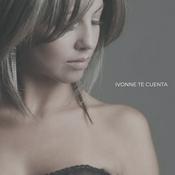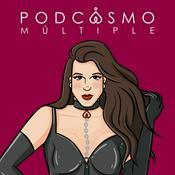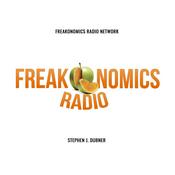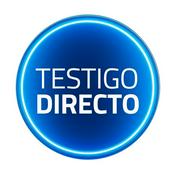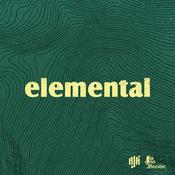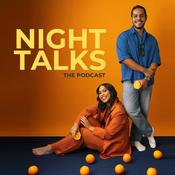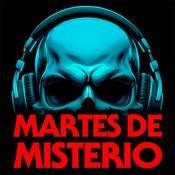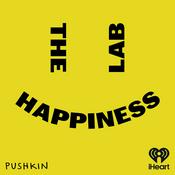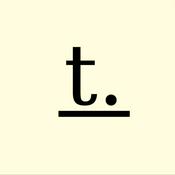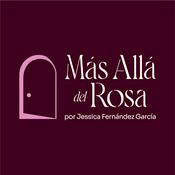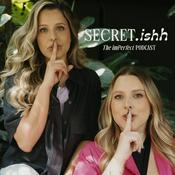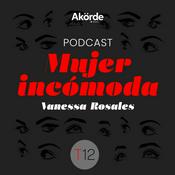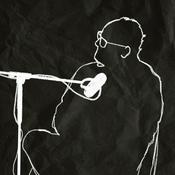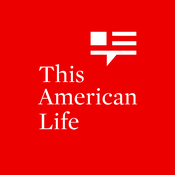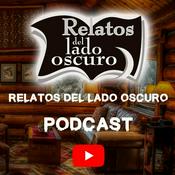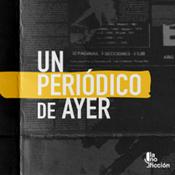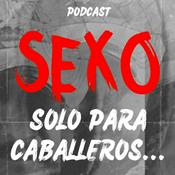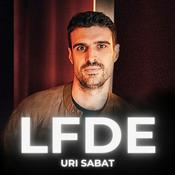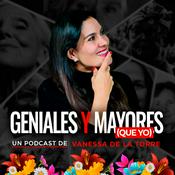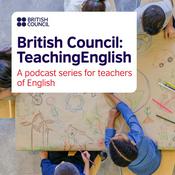38 episodios
- Does multilateralism still matter - and what would change if global cooperation were built for today’s world, not yesterday’s?
Marking the 80th anniversary of the United Nations General Assembly, this episode of Our World, Connected explores whether multilateralism can still deliver in a world shaped by geopolitical rivalry, global crises and declining trust in institutions. As the international system faces growing pressure, the episode asks what does global cooperation look like now - and who is it serving?
Host Christine Wilson is joined on this episode by Jane Kinninmont, Chief Executive of the United Nations Association-UK. Drawing on her experience across diplomacy, policy and civil society, Jane reflects on the UN’s founding purpose, the realities of power and compromise in international decision-making, and why multilateralism often works quietly, perhaps imperfectly, and out of the spotlight. Together, they discuss the tensions between principle and pragmatism, the challenges of legitimacy and reform, and what it would take for global institutions to remain relevant in a multipolar world.
We also hear a personal perspective from Juhi Adhikari, a Kathmandu-based youth leader and Youth Consultant at UNESCO. Juhi shares her experiences navigating international institutions as a young person, and reflects on why multilateralism can feel distant or opaque to many - particularly those most affected by global decisions. Her story highlights the gap between global policymaking and lived experience, and why youth participation must go beyond symbolism to shape real outcomes.
From global governance and power dynamics to youth voice and institutional reform, this episode asks whether multilateralism can evolve to meet today’s challenges - and what must change if international cooperation is to remain credible, inclusive and effective.
Listen to Our World, Connected, the award-winning podcast from the British Council, exploring culture, communication, and the power of collaboration in a changing world.
🏆 Winner of Gold for Thought Leadership at the 2025 Signal Awards.
Additional Resources:
Global Perceptions 2025
https://www.britishcouncil.org/global-perceptions-2025
Reflecting on 80 years of impact with the United Nations
https://www.britishcouncil.org/partner/international-development/news/reflecting-on-80-years-impact-with-united-nations
Listen to Jane Kinninmont’s own podcast ‘Disorder’
https://podcasts.apple.com/gb/podcast/disorder/id1706818264
UNA UK
https://una.org.uk/ - What does radical inclusion really look like – and what would change if dignity, access and belonging were built into our systems from the start?
Marking the UN’s International Day of Persons with Disabilities, this episode of Our World, Connected explores how societies can move beyond charity and good intentions towards a rights-based approach to disability inclusion – one that centres listening, participation, and meaningful action.
Host Christine Wilson is joined on this episode by Nada Ehab, a youth development specialist and advisor to the British Council’s Inclusive Youth Empowerment Programme in Egypt. Nada reflects on her journey from empathy-driven inclusion to a collective rights-based, participatory model, and shares insights from her work supporting young people with disabilities to engage in advocacy, social entrepreneurship, and community-led change. Together, they discuss the barriers that still exist in education, public spaces and digital environments, and why inclusion must be embedded across systems, not treated as a quota.
We also hear a personal story from Saja Mohammed Alkadhimi, a 19-year-old student from Baghdad, UN Youth Advisory Council member, and disability rights advocate. Saja shares her experiences navigating education as a wheelchair user, the importance of accessible infrastructure, and why inclusive schools matter not just for learning, but for belonging. Her story brings the conversation to life, reminding us that inclusion is about unlocking potential, not lowering expectations.
From education and policy to technology and leadership, this episode asks how we turn conversations about inclusion into concrete change - and why the responsibility for removing barriers must sit with society as a whole.
Listen to Our World, Connected, the award-winning podcast from the British Council, exploring culture, communication, and the power of collaboration in a changing world.
🏆 Winner of Gold for Thought Leadership at the 2025 Signal Awards.
Additional Resources:
Beyond inclusion: what Next Generation research reveals about disability and youth leadership
https://www.britishcouncil.org/voices-magazine/beyond-inclusion-next-generation-disability-youth-leadership
The British Council’s Disability Inclusion Community Steering Group
https://www.britishcouncil.org/study-work-abroad/alumni-uk/alumni-community-and-impact/disability-inclusion-community/steering-group
Breaking Barriers: Advancing Inclusive Education, Arts, and Youth Empowerment in Jordan
https://www.britishcouncil.org.eg/en/programmes/inspire-partnerships/shaping-the-conversation/breaking-barriers-inclusion-through-english-and-arts-jordan
Disability Arts | British Council Arts
Beyond the British Council:
https://www.unicef.org/iraq/press-releases/iraq-launches-national-disability-inclusion-strategy-children-and-young-people - How can higher education remain resilient in an age of uncertainty?
Universities everywhere are under pressure, from political interference and funding cuts, to rapid technological change and shifting public expectations.
In this episode of Our World, Connected, host Christine Wilson speaks with Michael Ignatieff, an award-winning author and historian, former leader of Canada’s Liberal Party, and former President and Rector of Central European University (CEU). A keynote speaker at the British Council’s Going Global 2025 conference, Michael reflects on the “storm clouds” gathering over higher education, drawing on his experience leading CEU through significant challenges, including political pressure that forced the institution to relocate. Together, they examine what resilience means for higher education today, the role of international partnerships and values-led leadership, the defence of academic freedom, and the human side of teaching and learning.
We also hear live reflections from three delegates at last month’s Going Global conference. Urvashi Prasad, a public policy and health specialist explores the role of empathy and evidence in shaping education, whilst Rawan Taha, a UN World Food Programme officer and UK Alumni SDG Ambassador shares her experience of adapting, upskilling and building resilience through international study. Finally, Caryn Nery, Director of Transnational Education (TNE) Partnerships at Victoria University, reflects on how TNE models proved robust during Covid and why diversified, student-centred partnerships matter now more than ever.
Listen to Our World, Connected, brought to you by the British Council. Subscribe and follow for more conversations on culture, connection, and the power of education.
🏆 Winner of Gold for Thought Leadership at the 2025 Signal Awards.
Additional Resources:
Going Global
https://www.britishcouncil.org/going-global
Understanding the impact of transnational education: insights from UK TNE alumni
https://www.britishcouncil.org/research-insight/understanding-impact-transnational-education-insights-uk-tne-alumni
Alumni Voices 2025: UK Graduates, Global Influence
https://www.britishcouncil.org/research-insight/alumni-voices-2025-uk-graduates-global-influence
Alumni Voices 2025: UK Graduates, Global Influence - How can culture and creativity be powerful tools for connection, diplomacy, and intercultural dialogue?
In this episode of Our World, Connected, we explore how art and cultural exchange can drive global cooperation, inspire climate action, embrace youth aspirations, and open new pathways for understanding in an increasingly divided world.
Host Christine Wilson is joined by Ambassador Antonio Patriota, Brazil’s Ambassador to the UK, and one of the country’s most experienced diplomats, for a wide-ranging conversation about the power of cultural exchange in shaping international relations. We discuss Brazil’s renewed environmental leadership, the UK's creative ties with Brazil, and the significance of the UK/Brazil Season of Culture 2025–26, a year-long celebration of artistic collaboration and cultural diplomacy.
Also featured in the episode is British-Iranian artist Javaad Alipoor, and his work for the UK/Australia British Council season (2021-22). He reflects on the politics of art, the power of international collaboration, and the nuanced role of soft power in global cultural work.
From the UK, to Australia, and onto Brazil, this episode highlights how cultural connections can foster understanding, amplify youth voices, and inspire action across borders.
Listen to the award-winning podcast Our World, Connected, brought to you by the British Council. Subscribe and follow for more thought-provoking conversations on culture, communication, and the power of collaboration.
🏆 Gold Winner for Thought Leadership at the 2025 Signal Awards.
Additional Resources:
Next Gen Brazil 2025
https://www.britishcouncil.org/research-insight/next-generation-brazil
UK/Brazil Season of Culture 2025-26
https://www.britishcouncil.org.br/en/programmes/arts/ukbrseason
The Javaad Alipoor Company
https://www.javaadalipoor.co.uk/ - What does cultural heritage have to do with climate change, and how can creativity help communities respond to a crisis that threatens both land and legacy?
In the opening episode of Season 3, host Christine Wilson explores cultural heritage and creativity in the context of climate action. From a local neighbourhood in Cairo, to the cultural policy conference Mondiacult, to the United Nations’ global gathering on climate change (the Conference of the Parties - COP), we’re asking how culture and creativity can build more resilient communities and more sustainable futures.
Christine is joined by Dr. Sally Flint, a writer, researcher, and creative lead of the We Are the Possible programme at the University of Exeter - an international initiative using poetry and storytelling to communicate the climate crisis. Through Sally’s work, we explore the power of the arts to foster emotional connection, shift perspectives, and imagine new possibilities for the planet.
We also hear from May al-Ibrashy, a conservation architect and founder of Megawra, an Egyptian initiative preserving historic Cairo through community-led heritage projects. As the climate crisis reshapes urban life, May shares how heritage conservation can restore not only buildings, but also agency, pride and collective memory.
Together, Sally and May offer a powerful reminder that culture is not just what we stand to lose, it’s also how we find the strength to act.
Listen to Our World, Connected, brought to you by the British Council. Subscribe and follow for more thought-provoking conversations on culture, communication, and the power of education.
Additional Resources & Links:
Season 1 Episode 5: Climate change and cultural heritage with Dr Scott Orr and Barbra Babweteera Mutambi
https://www.britishcouncil.org/research-insight/our-world-connected-podcast/climate-change-cultural-heritage-protecting-past-future
Climate change impacts on cultural heritage
https://www.britishcouncil.org/climate-change-impacts-cultural-heritage-0
The British Council Strategic Literature Review: Climate Change Impacts on Cultural Heritage
https://www.britishcouncil.org/research-insight/british-council-strategic-literature-review-climate-change-impacts-cultural
Follow British Council Research and Insight:
Newsletter – https://www.britishcouncil.org/research-insight/subscribe
Twitter – https://twitter.com/InsightBritish
Website - https://www.britishcouncil.org/research-insight
Más podcasts de Cultura y sociedad
Podcasts a la moda de Cultura y sociedad
Acerca de Our World, Connected
Our World, Connected is a brand-new podcast from the British Council, placing you at the heart of the biggest global conversations about culture, connection, and empowerment. Join host Christine Wilson, Director of British Council Research and Insight, and a diverse lineup of world-renowned experts and thinkers as they examine the most pressing issues of our time - and uncover the human stories behind them.
We’ll explore the transformative power of arts, culture, language, and education amidst global challenges like peacebuilding, sustainable development, climate change, and the growth of AI.
Sitio web del podcastEscucha Our World, Connected, TED Talks Daily y muchos más podcasts de todo el mundo con la aplicación de radio.net
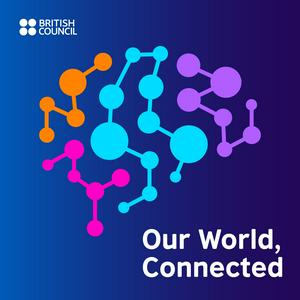
Descarga la app gratuita: radio.net
- Añadir radios y podcasts a favoritos
- Transmisión por Wi-Fi y Bluetooth
- Carplay & Android Auto compatible
- Muchas otras funciones de la app
Descarga la app gratuita: radio.net
- Añadir radios y podcasts a favoritos
- Transmisión por Wi-Fi y Bluetooth
- Carplay & Android Auto compatible
- Muchas otras funciones de la app


Our World, Connected
Escanea el código,
Descarga la app,
Escucha.
Descarga la app,
Escucha.

